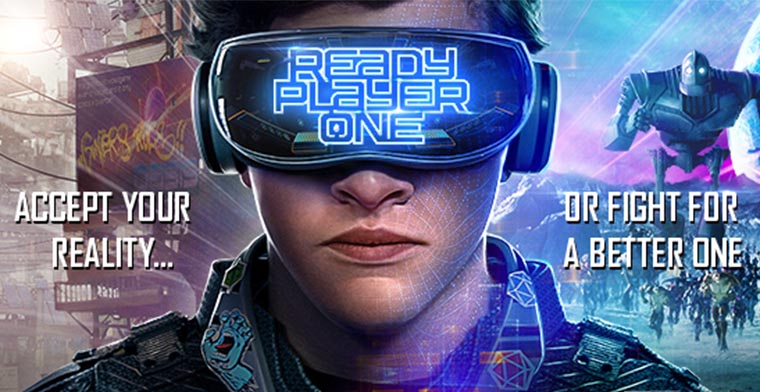By: Laura Bennett
Humans escaping the real world in favour of a digital alternative: sound familiar?
It’s the premise of Steven Spielberg’s latest science fiction flick, ‘Ready Player One’, and it’s a scenario that doesn’t seem that far from reality.
Based on Ernest Cline’s bestseller, the film is set in 2045 where the world is bleak and overpopulated, and on the brink of collapse. The people find refuge in OASIS – an immersive, virtual reality universe created by the brilliantly eccentric James Halliday.
Able to assume an avatar and create the image and life they dream of, players spend days on end lost in the digital world with little interest in coming back to reality, until they’re forced to face some real-world consequences.

Steeped in pop-culture nostalgia and 80’s throwbacks, Ready Player One is a fun nerdy adventure, but as Spielberg said at a Q&A for his Australian fans, “it’s a cautionary tale” about consuming ourselves with digital experiences. It acknowledges humanity’s long-held desire to escape through stories, but how, in this era, escapism can be all-encompassing.
Addressing everything from our inability to know peoples true identity in the digital space, and how much power can be found in controlling technology, there’s some sage advice in Ready Player One.
In a future where we each character occupies dual identities and normalises the trappings of living a double life, James 1:8 rings true, “Such a person is double-mined, and unstable in all they do (NIV).” Where is our real identity if we can be multiple versions of ourselves?
Ready Player One is timely as it calls us out for disengaging with the life that matters most. While bleak in parts, it offers hope for humans who see the value in real-world connection.
Article supplied with thanks to Hope Media.
About the Author: Laura Bennett is a media professional, broadcaster and writer from Sydney, Australia.
